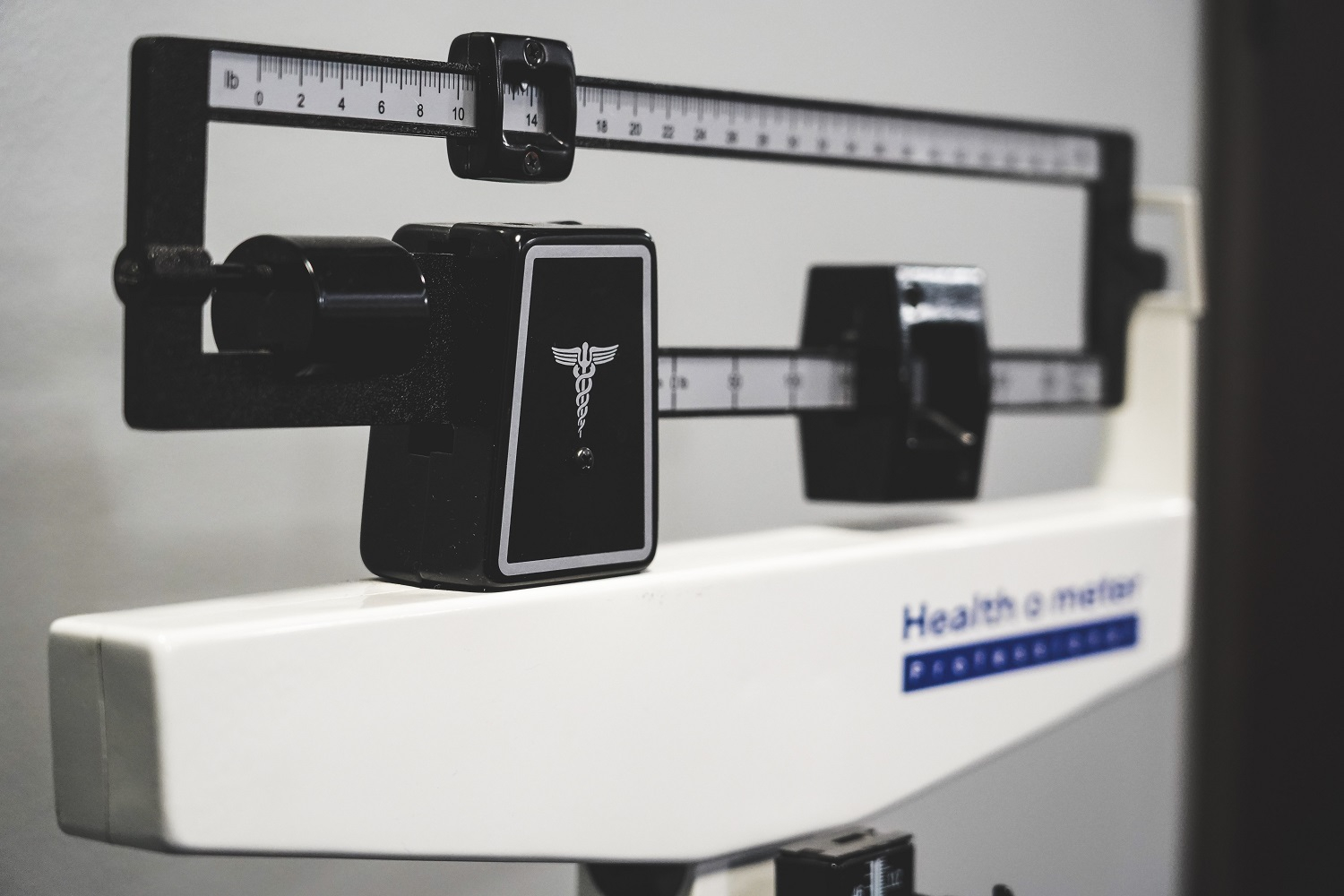Can You Be Healthy at Any Size?
Lifestyle
|
Sep 15, 2020
|
7 MIN READ

Image source: Good News Network
Editorial Note: In our lead up to the launch of our groundbreaking Haute Hijab Sport collection near the end of this month, we are focusing on all aspects of health, fitness and sports on the blog! Our writer Layla discusses the Fat Acceptance and Healthy at Every Size Movements and explores what the markers are for good health.
As waistlines grow in the United States and globally, there are growing movements to embrace burgeoning overweight bodies, generating conversations that resist ideas about what is considered healthy and further blurring the lines between weight extremes and overall health.
The Fat Acceptance Movement (FAM) involves a burgeoning online community and activists encouraging overweight and obese people to love the bodies they are in. Normally, discrimination against people because of body size is an ugly but acceptable part of our society, which prioritizes thinness as an ideal body type. Many in society consider obesity a moral flaw, and people are just lazy and brought their conditions on themselves.
Living Large
Bias against obese people permeates facets of their lives. According to Mayo Clinic Associate Professor of Health Services Research, Sean M. Phelan, Et al.:
"Obesity is a commonly and strongly stigmatized characteristic. There is substantial empirical evidence that people with obesity elicit negative feelings such as disgust, anger, blame and dislike in others. Despite the high prevalence of obesity (approximately one-third of the US adult population, individuals with obesity are frequently the targets of prejudice, derogatory comments and other poor treatment in a variety of settings, including health care."
The sad fact is that people still consider it socially acceptable to deride, degrade and discriminate against fat people. The bullying of obese children is a worldwide concern, and it often extends into adulthood. I still deal with the trauma of being pointed at and talked about at the masjid as well as having some people grab my sides to comment on my weight. It can all be too much.
Pervading social messages encourages a moral overlay on obesity, making an excessive amount of body fat a character flaw. Ignoring factors that may cause people to struggle with their weight leads to generalizations that obese people are lazy gluttons bent on killing themselves.
Fat acceptance and the correlating Health at Every Size (HAES) proponents push back against the immediate categorizing and ultimate dehumanizing of people based on body appearance and the scale as well as the diet culture that promotes being thin at any cost.
The book Health at Any Size, by Linda Beacon (actually a good read), gave rise to the titular, purported social justice movement seeking increased cultural equity for overweight and obese people. Its major principles include increasing inclusivity, implementing equitable access to information and services to enhance health and well being, eliminating weight stigma and bias, shifting from diet culture to more productive and intuitive eating and encouraging movement amenable to people of all sizes and body shapes.
Normally, I am down with all of that. Weight inclusivity in a society getting bigger by the day is critical to prevent massive alienation and the emotional toil resulting from othering fat people, like me. We also can all develop better relationships with food and exercise in an environment loaded with an expanse of food options and on that promotes sedentary jobs and lives.

I began exploring the hashtags on my social media. After looking into the FAM and HEAS crowds, I noticed that they also had some disturbing messaging and biases. Ideally, the HEAS philosophy is for universal application by people in a range of sizes, but there is some overlap with fat acceptance proponents, including those on the extreme end of the movement.
In efforts to celebrate fatness, a lot of influencers and advocates promote unmeasured and mindless eating and ignoring medical advice about weight loss, obfuscating the initial principles of both movements – accepting the body you're in and honoring it by migrating to a healthier life. I will not use this platform to call out specific people.
Quite frankly, members of both groups can be catty. Anyone critical of their promotion of rampant eating and discouragement of weight loss – even to stave off body damage – labeled “fatphobic.” Scales, before and after weight loss images and conversations that dare to encourage anything that may lead to fat loss (purposeful or inadvertently) are all evil. They will shut it down and go all in to decimate anyone daring to criticize their darlings. Your girl does not have the time for that pain.
So, what are the markers and ways we can maintain good health in our bodies and come to an understanding of different, healthy body sizes?
Health At Any Size?
The promotion of better internal and external interaction with larger bodies generates one nagging question remains. Can people be healthy at any size?
“Size is not a determining factor of health,” says Dr. Muslimah ‘Ali. “It’s not just about how you look. [However] fat acceptance [can be] a little dangerous. “Accepting your body at any size is positive. You shouldn’t be forced to change yourself [for society], but [adehering to] the more extreme idea that you can be healthy at 600 pounds is a dangerous narrative. You can’t be healthy at 80 pounds either. As Muslims, we want to stay away from either extreme.”
Many in the HEAS movement purport that it is not weight but fitness that is the primary indicator of health, which can be misleading. Being able to workout may demonstrate fitness, but that does not mean that there is no internal damage.
“Excess weight may cause physical injury by stressing the joints, and there may be internal injuries,” says ‘Ali. How hard does your heart have to pump or blood vessels have to work to constrict and relax to give your body what it needs?
“When you have more fat than organs and muscles in your body, it impedes function. That’s when it’s an issue.”
Fat is Not the Problem
We see fat people and assume they are unhealthy and their adipose tissue is the catalyst for any disease or illness, instead of a symptom. “Weight is a sign that there is a metabolic problem,” says trainer, Mubarakah Ibrahim. “Weight is not the problem, [it is] the result of the problem.
“[For example,] if a person has a metabolic disease like diabetes, weight is a side effect. If your insulin, a fat-storage hormone, is constantly high, your body will store fat. When you get healthier, the weight will come off.”

I heard the lose weight mantra for decades from doctors. They were not necessarily wrong, but the prevalent approach to just tell a big person to get smaller does not help the majority of times and can cause some emotional trauma by inferring that it is just that easy. There must be something wrong with a person who can’t simply shed a few pounds and keep them off.
Alhamdulillah, I met my current doctor at a Muslim health fair. She took my blood pressure, which was sky-high. No surprise. I waited for the “you have to lose weight” refrain. It never came. Instead, she asked me what I was eating and when, if I was sleeping, and how often I moved during the day – not exercised – moved. She never brought fat into the conversation. When I brought up my weight, she said she was more concerned about what was happening to put my body in distress. If we got those things fixed, the weight would come off.
Go figure.
Let’s face it – most of us put a lot of metabolic stress on our bodies. We get little sleep, remain chronically stressed and inhale food that a lot of times have little nutritional benefit. Disagree? Check out your dining table. How many things came in a box, packed with sugar and with a bunch of ingredients you can’t pronounce? Is there a bunch of food in takeout containers. I don’t care if it is from the local vegan restaurant. They shove sugar and fat just as much as the big fast-food chains.
We eat, sit and eat some more. Then we expect our bodies to take up the slack when it comes to our internal health, and it does – for a while.
Skinny People, Too

My family has people who have issues with their weight and those who are thin. We have all had to deal with different things. My husband has been at his ideal weight most of his life. During a particularly stressful time, he shifted from his normal eating pattern, drinking more soda to stay up. Although he has never been overweight, he experienced some minor weight gain, and his body responded. He moved slower but his annual blood panel was stellar, as usual.
His weight gain was not physically apparent, but it had been significant enough to send his metabolism out of whack. So, thin people should not feel safe from the effects of poor eating and can end up staring down the barrel of metabolic issues like hypertension, non-alcoholic fatty liver disease and insulin resistance/diabetes.
Do not feed (pun intended) into societal delusions or the musings of cultural movements fringes about body size. Research and talk to professionals with pertinent information for you to determine if your size is indeed healthy.
Subscribe to be the first to know about new product releases, styling ideas and more.
What products are you interested in?

